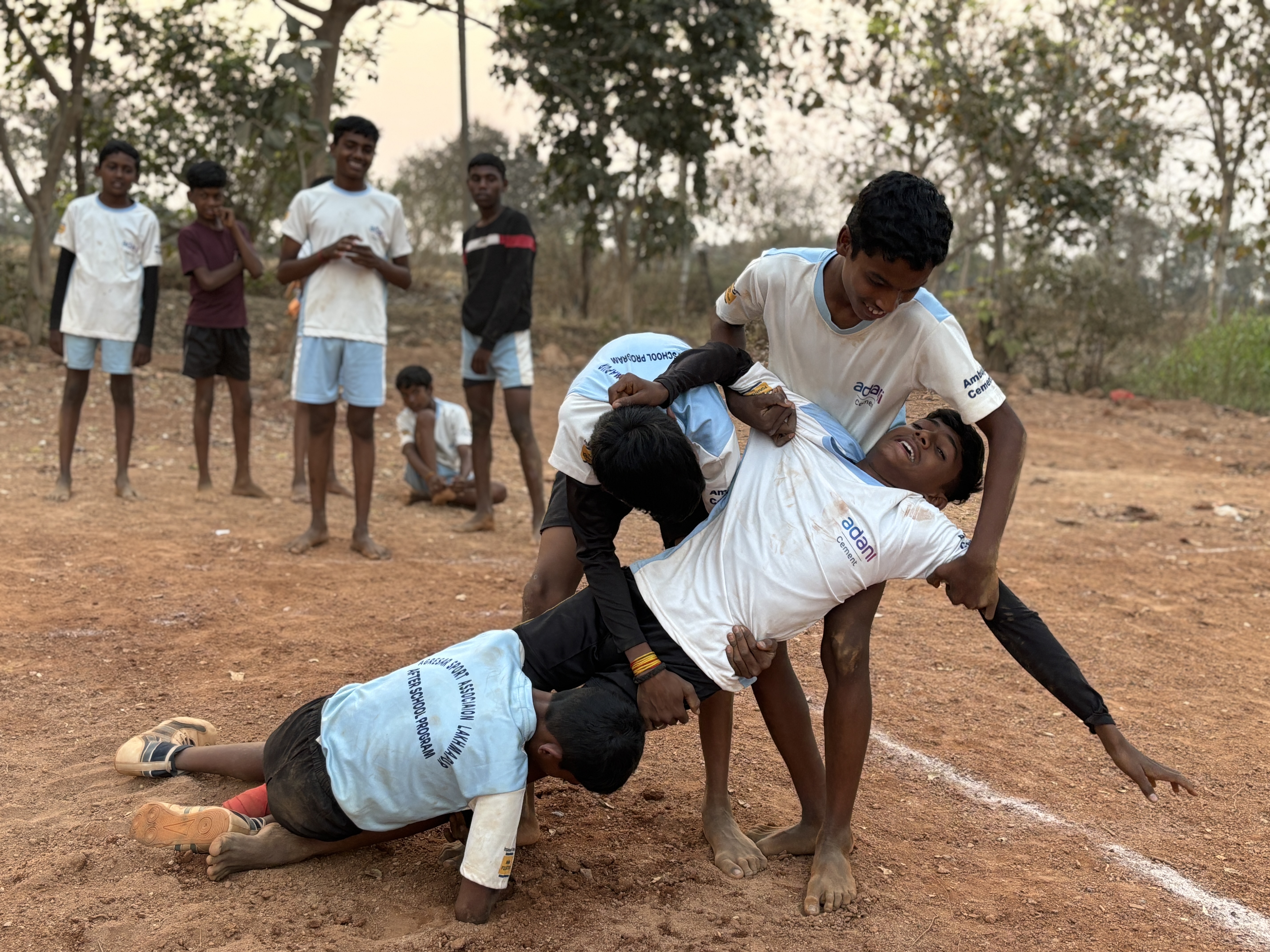In the rural heartlands of India, where opportunities are often scarce and challenges aplenty, Ambuja Foundation is transforming futures— one playground at a time. Through its Sports Promotion Programme, the Foundation is helping children build stamina, confidence, and character. Along the way, school attendance has surged, learning outcomes have improved, and rural athletes are shining on state and national podiums.
Here’s how the transformation is taking shape, piece by piece:
1. Capacity Building of Teachers - The journey began by investing in the very people who could make or break the programme: teachers. Ambuja Foundation has trained schoolteachers to deliver structured daily sessions—targeting endurance, agility, strength, and speed. These teachers have become mentors and motivators, creating an inclusive sports culture that draws every child in.
2. Infrastructure & Equipment - To provide a safe and conducive environment for sport, Ambuja Foundation renovated and levelled school grounds across Nalagarh, Himachal Pradesh and Chandrapur, Maharashtra while also upgrading local community playgrounds. Schools received sports kits with cones, footballs, volleyballs, and nets. Students in after-school and competition level trainings were provided with uniforms and specialised equipment—enabling them to take their game to the next level.
3. In-School & After-School Programmes - Sports are now woven into the School’s daily time-table, making physical activity a part of every student’s routine. Promising children receive additional coaching in the after-school programmes in places like Chandrapur and Bathinda—nurturing raw talent and sharpening skills. These sessions provide the perfect bridge from participation to performance.
4. Specialised Sports - The programme has diversified beyond basic athletics into specialised disciplines like kabaddi, kho-kho, volleyball and karate. In Chandrapur, for instance, just 36 karate classes led 14 students to clinching one gold, five silver, and seven bronze medals at the 2024 International Karate Championships in Hyderabad.
5. Representation Beyond the School - The impact is stretching far beyond school boundaries. Seven athletes from Chandrapur qualified for state-level athletics in Pune—excelling in shot put, long jump, and javelin. Thirteen-year-old Anushka from Maharashtra, now a Khelo India–qualified 800m runner, secured second place in a 300m event in Nagpur. Two students from Darlaghat were selected for the National Volleyball team and two students from the after-school programme of Nalagarh, were selected for the kabaddi national team.
Sport is rewriting the story of rural education. Attendance in schools that once averaged just three to four days a week is now close to 100%, fueled by the excitement sports bring. In Bathinda’s Bulladewala Primary School, sports sparked full attendance across all six days. Children are not just stronger and sharper—they’re more engaged in class, hungrier to learn, and prouder of their potential. In rural Himachal, physical literacy programmes have yielded 73–74% improvement in core fitness markers.
Ambuja Foundation is not just building athletes—it’s raising tough young minds who are ready to compete on the field and in life.

.png)


